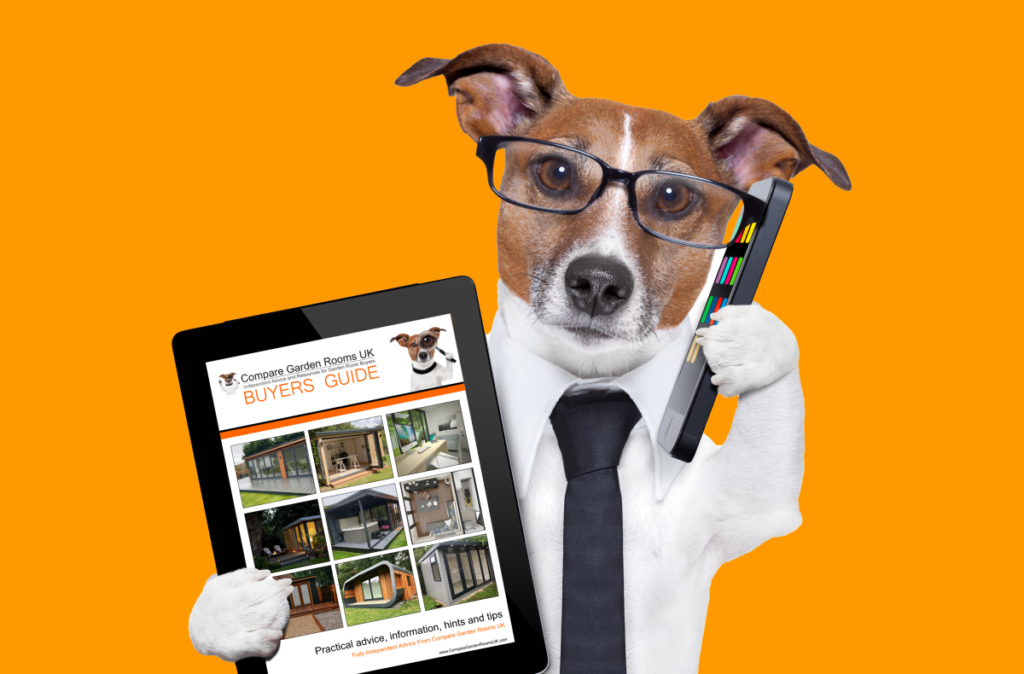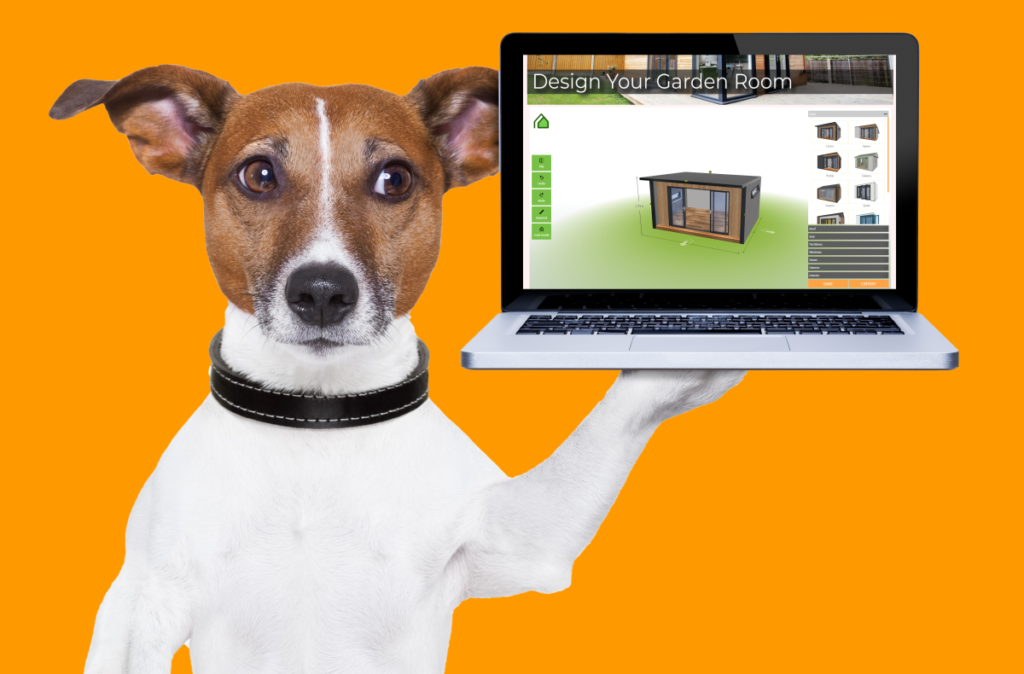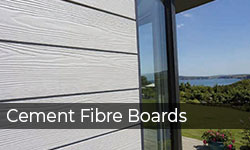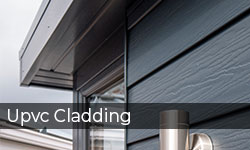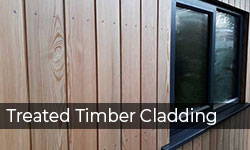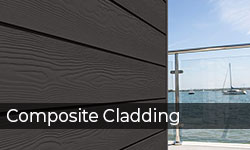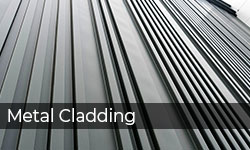
Metal Cladding
Metal wall cladding sheets offer a modern alternative to traditional wall cladding materials, such as timber or tile sheeting, and make for a cost-effective cladding solution. Steel wall cladding sheets are available in 0.5mm thick profiled sheets, and in a range of finishes and colours to suit your budget and garden room project.
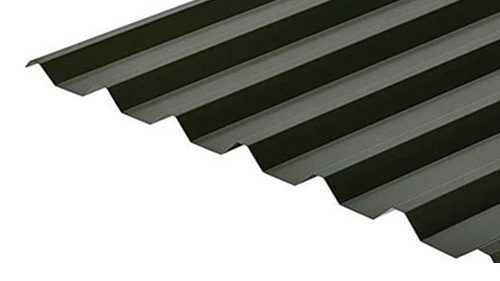
Types Of Metal Cladding
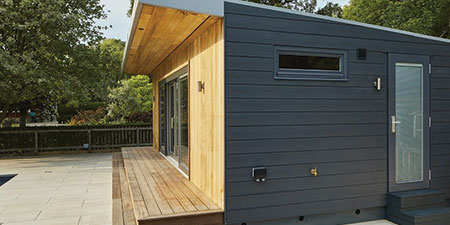
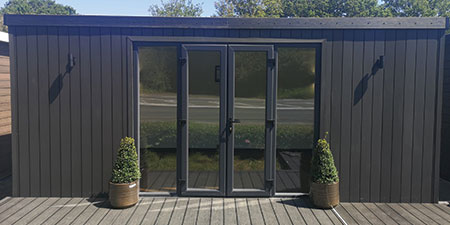
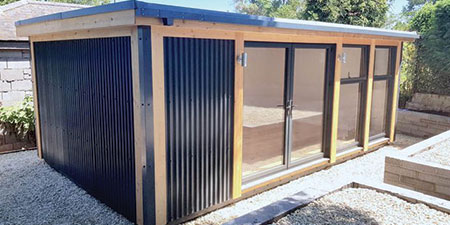
As with timber cladding, there are a number of different metal cladding types available to homeowners these days, although for most people, the choice comes down to four main materials:
- Steel
- Aluminium
- Zinc
- Copper
All of these materials are available in various formats, from corrugated sheeting to composite products, which are supplied pre-formed, incorporating insulation.
Advantages of Metal Cladding
Disadvantages of Metal Cladding
Durable
There is no better cladding material option that can beat the durability of metal panels. Metal cladding is remarkably strong and highly resilient to water damage, electrochemical reactions and corrosion. Overall, metal panels boast of an impressively long lifespan while requiring almost no maintenance.
Rust
Cladding sheets are coated when they are manufactured to protect them from the elements. When these sheets are cut to size, the edges aren’t re-coated, leaving them exposed. Over time, the edges of the cladding sheets are likely to rust. This can lead to leaks and eventually lead to the cladding panels needing to be replaced
Wide Range Of Styles And Finishes
Metal cladding can dramatically change the overall look of a building. It comes in a wide range of finishes and varying styles; including a wide range of colour options.
Colour Fading
The technical term for fading is photodegradation. This can be caused by a number of factors including UV light, harsh weather, pollutants and moisture in the air (especially in coastal areas where the air often contains salt).
Low Maintenance
In comparison to wood, stone and painted surfaces; metal cladding panels required very little maintenance or repair work. Metal cladding is very resistant to harsh weather conditions, so can often simply be cleaned to keep it looking good.
Chalking
Where paint naturally and literally wears away, different types of paint degrade at different rates.
Sustainable
Metal cladding panels can be made of post-consumer recycled products, making them environmentally friendly and reducing the amount of material that goes to landfill. This is a great opportunity for contractors to reduce the carbon footprint in the environment.
Delamination
While the durability of the latest generation of plastisol cladding has improved, ageing and weathering will still cause it to deteriorate over time. Moisture can seep in and create rust, which can split the top polyester layer from the metal of the cladding.



